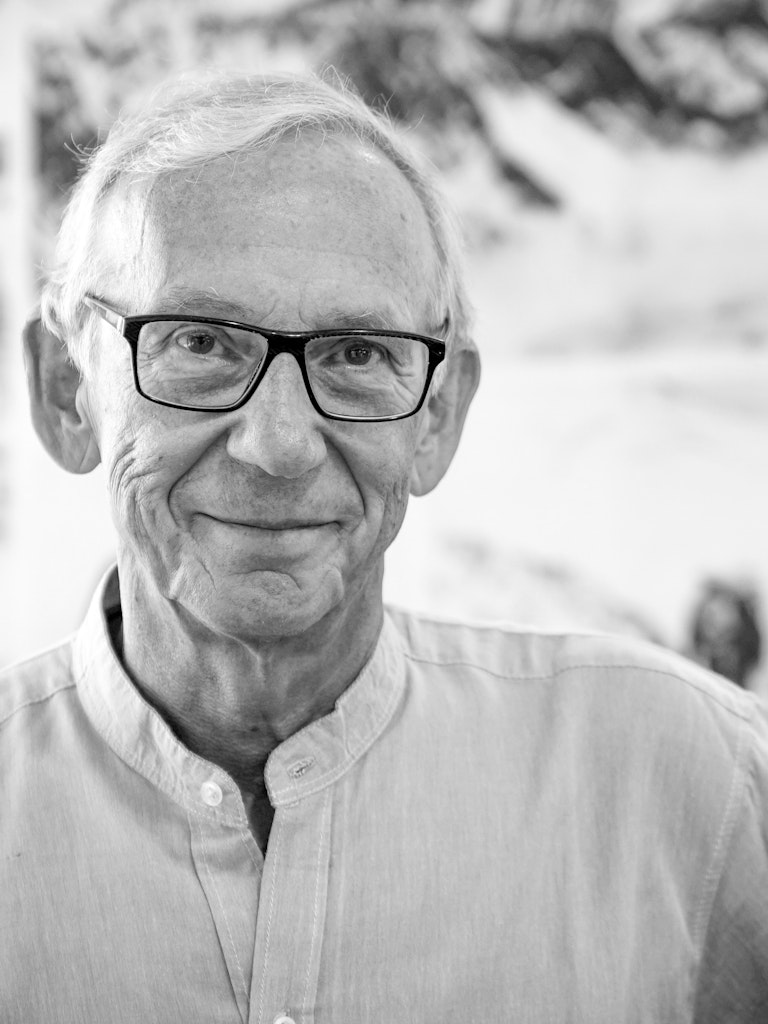magazine_ Interview
"Right now, we're an information hub for health networks."
Interview with Hermann Brugger, head of the Institute of Mountain Emergency Medicine.
Four weeks have passed since President Conte declared the whole of Italy a "red zone" due to the coronavirus pandemic. The health crisis is putting emergency doctors to the test and it’s becoming apparent that the dire intensive care situation in Lombardy could easily extend to other countries. With its German, Italian and English-speaking researchers, Eurac Research's Institute for Mountain Emergency Medicine serves as a link between relief organisations in different areas of Europe and has recently made a considerable contribution to this crisis.
A few weeks ago, nobody could have foreseen a situation such as this. To what extent has your daily life as researchers changed because of Covid-19? How are you and your staff coping?
Hermann Brugger: I guess our situation is similar to that of other researchers. We only communicate digitally and for the work itself this is fine. What is missing, however, is the social contact between us, and that’s sad. In our institute we are all very close, we’ve set up an online meeting at least once a week in which all employees participate to try and maintain the interconnected atmosphere that characterises our group.
From 2020, all rescue organisations will have to take special precautions when an accident occurs because they won’t know whether the person to be rescued is coronavirus-positive or not.
Hermann Brugger, director of the Institute for Mountain Emergency Medicine
Your institute’s main areas of research are the treatment of hypothermic patients and avalanche victims, and more generally mountain and high-altitude medicine. What contributions can your research make to the current crisis?
Hermann Brugger: We are not epidemiologists or virologists, but we are doctors and some of us happen to be resuscitation and intensive care doctors. What we’ve observed, especially when the epidemic began to spread, is that Italian doctors distributed protocols for treatments and reports from hospitals online. Following that we quickly started to collect all the practices which had been written in Italian. They don’t have a scientific function, but they do contain very practical information and advice, for example on how to handle protective devices - the main problem is not putting them on, but rather taking them off - or information on intensive care and ventilation of Covid patients: in some cases lying on the abdomen makes pulmonary ventilation easier. In our institute we communicate in three languages and being in South Tyrol means we are on the border of northern and southern Europe and between the Italian and German language areas. Thanks to our work we are also part of international networks in which English is the official language. So, as a collective we decided to take action, we started translating protocols, formed a network and disseminated practical indications to anaesthetists and intensive care physicians in Austria, Germany, Switzerland as well as to the international networks we are members of in order to better prepare everyone for emergencies. It worked, quickly and well and was welcomed with immense gratitude.
Looking to the future: when the first phase of this pandemic is over, do you think your research field will change because of Covid-19?
Hermann Brugger: At the moment I can only say that a colleague from the US has just sent me the new American guidelines for mountain rescue which were updated according to the Covid-19 crisis. The guidelines foresee an important change: from 2020, all rescue organisations will have to take special precautions when an accident occurs because they won’t know whether the person to be rescued is coronavirus-positive or not. We’ve already had a few ideas regarding our specific research area. For example, some rescue teams work with apps to track accident victims. These apps could be converted to get a better overview of coronavirus infections. I am also currently working with the Max Plank Institute in Leipzig to create an innovative online platform designed to provide access to the final drafts of scientific articles, so-called pre-prints, in all medical fields related to Covid-19. Access to these unpublished articles is extremely important: it allows doctors to always have the latest research results available through an open science system. In this way, all the knowledge acquired relating to the coronavirus can be disseminated in real time. Other projects will certainly be added to these ideas. We are getting a lot of information and our institute is increasingly establishing itself as a point of contact, able to distribute valuable information between international medical networks.
Hermann Brugger
is head of Eurac Research's Institute of Mountain Emergency Medicine.

